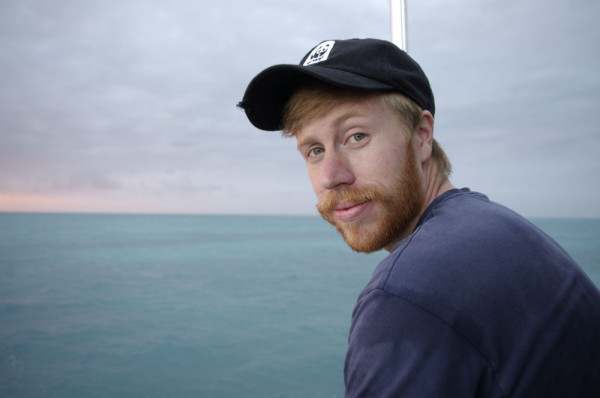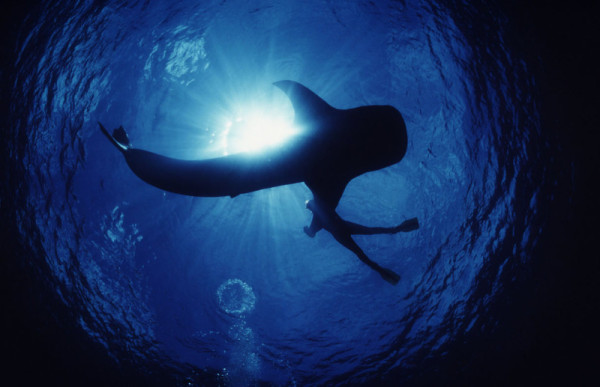Finding a home in shark waters
Meet Jarrett Corke: shark project coordinator at WWF-Canada’s Halifax office. That’s right; his job title is shark project coordinator. Awesome, right? In my opinion, Jarrett has one of the most interesting jobs here at WWF-Canada, as he works to conserve shark populations and spread awareness throughout the Atlantic Provinces on how we can protect these amazing and vulnerable animals. In light of the upcoming World Oceans Day, I checked in with Jarrett to learn more about his work and how his interest began.

When did you first become interested in sharks? Sharks have been on the forefront of my mind for as long as I can remember! When I was younger, watching things like Jaws, Shark Week and Discovery Channel piqued my interest, and I had a respectful fear of sharks then.
I know you’re a scuba diver – when did you first start diving and have you ever swum with sharks? I grew up in Ontario, and started getting into diving in university, and did open water training in Georgian Bay. While traveling through Central America after school, I had my first opportunity to dive with sharks – grey reef sharks! It was an amazing, eye opening experience. I jumped in terrified, but within 45 minutes I emerged with a completely different outlook. The sharks I swam with were very cautious of humans – sharks are just as nervous of us as we are of them. I’ve dived with many different species and it’s the same feeling of awe every time, whether it’s a 3 foot nurse shark or a 15 foot tiger shark.

What kind of work do you do as shark project coordinator? I work on the species conservation team at WWF, and my main focus is, of course, sharks! Sharks are a very vulnerable species – it’s estimated that 100 million sharks are killed each year – and we work to address the main threats they face here in Canada. For example, a big threat to shark populations is being caught in fishing gear not as target species, but unintentionally, as bycatch, and so WWF works to reduce that threat. I work directly with a number of local fishermen, the ones who are out on the water every day, to meet with them to gather knowledge on the sharks they see, where they encounter them and what happens when they do. Getting to understand their work from their point of view is so important. They don’t want to see these sharks harmed, and working together, we figure out ways to reduce the impact.
With the help of partners and other WWF staff, I have also developed a shark identification guide (which you can find here) that helps fishermen and fisheries observers on the water better identify the sharks, skates and rays that they are seeing. Using this guide, myself and other members of the species conservation team work to facilitate training sessions with fisheries observers throughout the Atlantic Provinces on species identification and reporting.
If you could tell everyone one thing about sharks, what would it be? I suppose I just wish that everyone could have the experience of swimming alongside sharks – it would change everything you think you know about them. They are beautiful, vulnerable creatures. And they’re in trouble.
To learn more about WWF’s work protecting shark populations, visit wwfcastg.wwf.ca/sharks.
